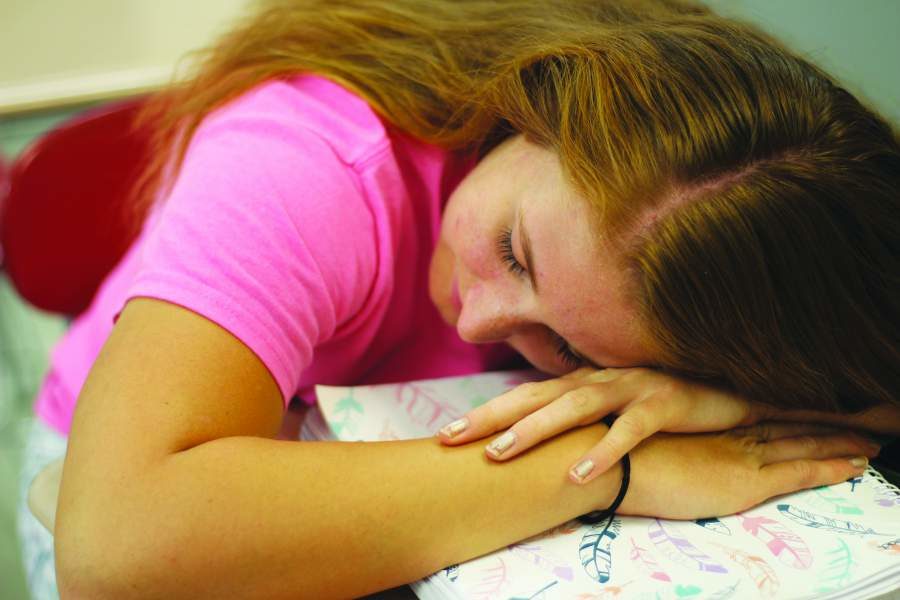Sleep: The Secret to Success
Though often overlooked, sleep is as important to the functioning mind and body as eating, drinking and breathing.
Senior Emma Miller takes a break before resuming her studies because she didn’t get enough sleep the night before. She went to sleep late the night before because she had homework from multiple AP classes and varsity cheer practice. Math teacher Andrew Benton said, “In order for your brain and body to work properly, you need adequate rest.”
Hardly any high school student can go through a full week without muttering, “I’m so tired” or “I went to bed so late last night.”
According to the Nationwide Children’s Hospital, the healthy amount of sleep for adolescents ages 13 to 18 is 9.25 hours, but adolescents today average about seven hours of sleep each night, and the effects of sleep deprivation can have some intense drawbacks.
There are some pretty obvious things that losing sleep can do. Junior Gabriel Tijerina has experienced the effects of sleep deprivation.
“[Sometimes] I find myself dozing off or struggling to pay attention if I don’t get enough sleep the night before,” Tijerina said.
The loss of concentration, crabbiness and drowsiness just scrape the tip of the iceberg.
While asleep, the brain does some important business. For one, it consolidates and links memories during REM and non-REM sleep. This is why sleep is so vital for learning: it helps cement the information we are learning, so that we can recall it later when we need it.
“Sleep after learning is essential to help save new information into the architecture of the brain, meaning that you’re less likely to forget it,” Dr. Matthew Walker, a University of California, Berkeley sleep researcher, said to the National Institutes of Health.
Think twice before pulling an all-nighter to study for the next day’s exam, because Walker estimates a 40 percent drop in learning information as a result of a lack of sleep. On the flipside, rapid weight-gain can be directly linked to sleep deprivation because a lack of sleep promotes higher levels in insulin, which induces fat storage and even increases the risk of developing Type 2 Diabetes, according to Harvard Medical School. Turns out, sleep is just as important to maintaining and losing weight as dieting and exercising.
Another side effect of sleep deprivation is microsleep. This is when someone seems awake, but isn’t truly conscious for seconds or minutes. Technically speaking, it can be considered “sleeping with your eyes open.” Some instances of microsleep may include simple things like brushing teeth in the morning or putting on deodorant. Microsleep can be especially dangerous while driving, proven when the driver doesn’t remember the drive to a certain place because he was technically awake, but unaware because of he was experiencing microsleep.
“I have often caught myself later in the day unable to remember if I did everything to get ready that morning,” senior Breanna Carley said.
Whether it be for simply feeling refreshed during the day, retaining information, losing or maintaining weight, or avoiding life-threatening circumstances, sleep is a massive part of daily life, and should not remain overlooked.



